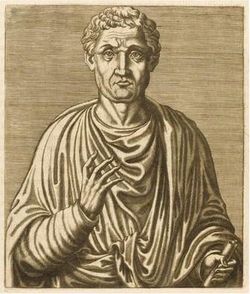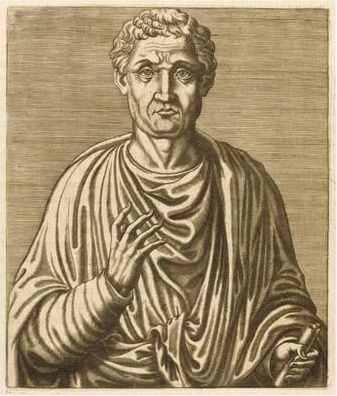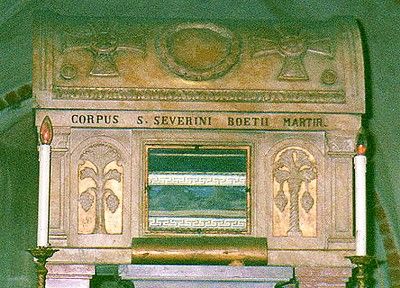Roman philosopher, statesman, and mathematician, known for his significant contributions to Western philosophy during the late Roman Empire. Born around 480 into an influential Roman family, Boethius rose to prominence under the Ostrogothic king Theodoric the Great, serving as consul and later as magister officiorum, or chief administrator. Boethius is best known for his work "The Consolation of Philosophy," written while he was imprisoned awaiting execution for treason. This philosophical masterpiece explores themes of fate, free will, and the nature of happiness, blending Neoplatonic thought with Christian theology. Boethius also made important translations and commentaries on works by Aristotle and other Greek philosophers, preserving classical knowledge for future generations. His writings profoundly influenced medieval and Renaissance thought, earning him a lasting legacy as one of the greatest philosophers of his time. He died between 524 and 526
Roman philosopher, statesman, and mathematician, known for his significant contributions to Western philosophy during the late Roman Empire. Born around 480 into an influential Roman family, Boethius rose to prominence under the Ostrogothic king Theodoric the Great, serving as consul and later as magister officiorum, or chief administrator. Boethius is best known for his work "The Consolation of Philosophy," written while he was imprisoned awaiting execution for treason. This philosophical masterpiece explores themes of fate, free will, and the nature of happiness, blending Neoplatonic thought with Christian theology. Boethius also made important translations and commentaries on works by Aristotle and other Greek philosophers, preserving classical knowledge for future generations. His writings profoundly influenced medieval and Renaissance thought, earning him a lasting legacy as one of the greatest philosophers of his time. He died between 524 and 526
Advertisement
Explore more
Sponsored by Ancestry
Advertisement



